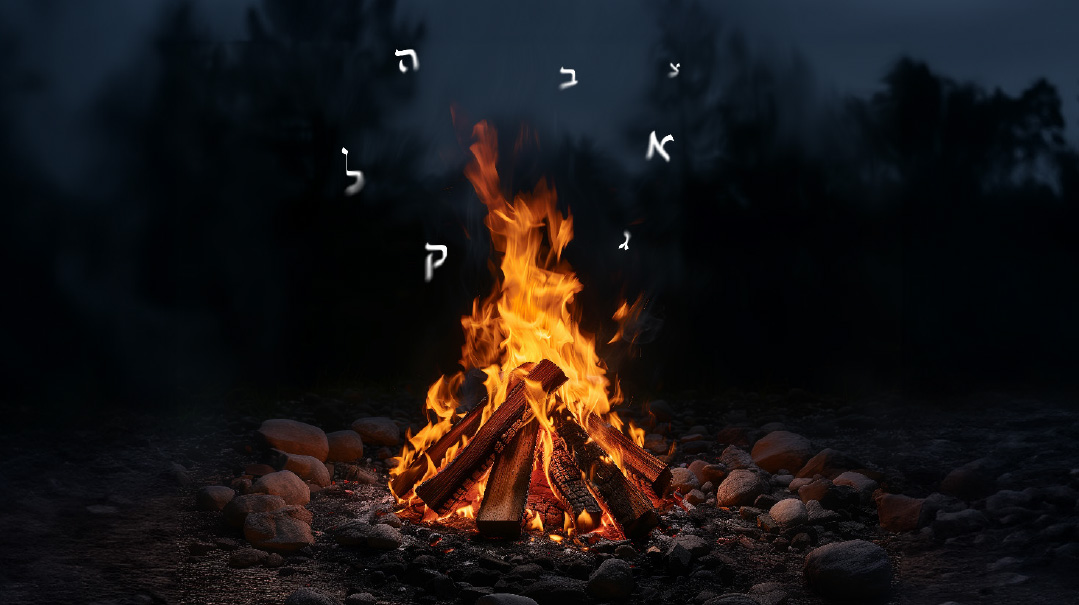Lightening the Load

You can't share your friend's burden until you open your mind to his plight

Prepared for print by Rabbi Eran Feintuch
F
or the past three months, a steady stream of suffering has engulfed the Jewish People. The tragedies of Shemini Atzeres were only the beginning. We have lost soldiers at the prime of their youth, chassanim awaiting their wedding day, fathers of young children. Families live in the hospital, praying for their loved one’s recovery; others live in constant dread of the dangers that abound on and under the ground.
The suffering around us isn’t just a cause for weeping — it’s a call for avodah. Our times demand from us the middah described in Pirkei Avos as nosei b’ol im chaveiro; literally, sharing our friend’s burden. Being nosei b’ol means seeing everything that your friend is going through, including the subtle difficulties you wouldn’t notice with a superficial glance. This is a necessary step toward helping your friend or providing emotional support, but it’s also significant in itself. Even when we can’t help, we must not remain indifferent to our fellow Jew’s plight. If we can’t alleviate our friend’s difficulty, the least we can do is acknowledge it.
To work on being nosei b’ol, we have to dispel a common misunderstanding. Being nosei b’ol doesn’t mean feeling other people’s pain. If we understand the severity of their hardship, we will inevitably be emotionally affected. But if we try to approach the plight of our fellow with our heart alone, we risk getting sucked into the quicksand of despair. Becoming too emotionally involved actually prevents us from helping others, because when someone is sinking in quicksand, only someone standing on firm ground can help him.
The beginning of being nosei b’ol is not to feel for the other person, but to think about him. To take a moment to step into his shoes and just think about his world, without searching for solutions. What is it like to live in his situation, day in and day out? How does it impact him physically, emotionally, spiritually, and socially? We’re often blind to the difficulties our friend experiences because we don’t think about his life. Even caring comrades can be oblivious to the most painful aspects of their friend’s situation, simply because they never thought it through.
IF we’re honest, most of us have to admit that we spend little time actually thinking about someone else’s life. I’m often struck by this when young people consult with me about shidduchim. Recently, a bochur told me his prospective shidduch is an accountant. To him, that fact just meant she makes a decent salary. I asked him if he’d thought about what her career entails. Being an accountant requires 100 percent accuracy. If she makes a mistake, she could get fined; if she deliberately fudges a few figures, she could go to jail.
I asked him: “Have you ever been accountable for the truth like that? How many times have you given a chaburah when you knew your chiddushim were not pure Torah truth? You’re dating a person you may want to marry, but you haven’t even dedicated one minute to thinking about her world!”
Most of us are like that bochur. We see other people, even those closest to us, and never pause to think about their lives. Unless we see what burdens our friend is carrying, we can never help lighten his load.
Sure, when we see a friend in distress, we rush to help. But if we don’t take the time to think about what our friend is going through, our efforts can actually pour salt on his wounds. Years ago, my friend’s wife passed away, leaving him with five small children. At the shivah, I found him surrounded by visitors, and I felt a bit superfluous.
But when I spoke with him, he told me he was very happy I’d come. Because, he explained, everyone else had assured him that his wife’s passing was really a good thing; I was the first to acknowledge that something terrible had happened to him.
What the other visitors told my friend wasn’t nosei b’ol — it was sheer cruelty! Every word they said was true: Everything Hashem does is for the best. But they didn’t think about what my friend was going through, and how their remarks would make him feel. His life had been destroyed, he had no idea how to survive the next day, and they told him something good had happened to him. They knew about the events of his life, but they never put themselves in his shoes to consider what it was like to endure them.
SO many Jews today are in pain, so many others are paralyzed by fear. While being nosei b’ol is always important, it is rarely needed as acutely as it is now. Hashem is challenging us to work on being nosei b’ol. But we can’t take in all the suffering around us. If we dwell on all the hardships people are enduring, we will certainly break. So how do we meet Hashem’s challenge?
We have to understand a major principle in avodas Hashem. When Hashem presents us with a challenge in avodah, He’s showing us an area He wants us to work on; but He wants us to focus our efforts in the right framework. The current tragedies show us that Hashem wants us to work on being nosei b’ol, but we should start off with easier cases than those tragedies themselves.
There are opportunities galore to work on being nosei b’ol, even for those who live far away from the carnage of the war. Say your spouse is upset with you, and you don’t know why. You instantly conclude that he or she is overly irritable or hypersensitive (come to think of it, your spouse has always been that way), and you either defend yourself or wait for the storm to pass.
Next time, try to put yourself in your spouse’s shoes, and think. What makes him feel so upset? Where is she coming from? What’s going through his mind? Besides discovering our own faults, we’ll begin to understand our spouse much better.
Think about your children. Not about getting them to do what you want, but about their lives. What does it feel like to walk in their shoes? What are their difficulties and frustrations? What do they need from me as a parent? We don’t need to be psychologists; we just need to take a few minutes to think about their world.
WE can even work on being nosei b’ol in times of simchah. When my sons were in yeshivah, two of my daughters got engaged nearly simultaneously. All my friends came to wish me a double mazel tov. But not one of them considered what it was like to marry off two children at the same time. I was bursting with joy, of course; but on the other hand, I had the unsettling feeling that my bustling home was becoming an empty nest overnight. None of my friends sensed that, because they didn’t put themselves in my shoes and imagine how my life’s events might make me feel.
The avodah of being nosei b’ol is tremendously rewarding. If we start to think about the lives of those around us, we will experience newfound harmony and depth in our relationships. We will grow by making other people, not only ourselves, the subject of our thoughts. And, once we understand the difficulties others face, we’ll be able to help them more effectively.
Let’s accept the challenge of our times, and train ourselves to think about the lives of the people around us. Because the first step to helping someone bear his load is to place it, not upon our shoulders, but upon our mind.
(Originally featured in Mishpacha, Issue 996)
Oops! We could not locate your form.






